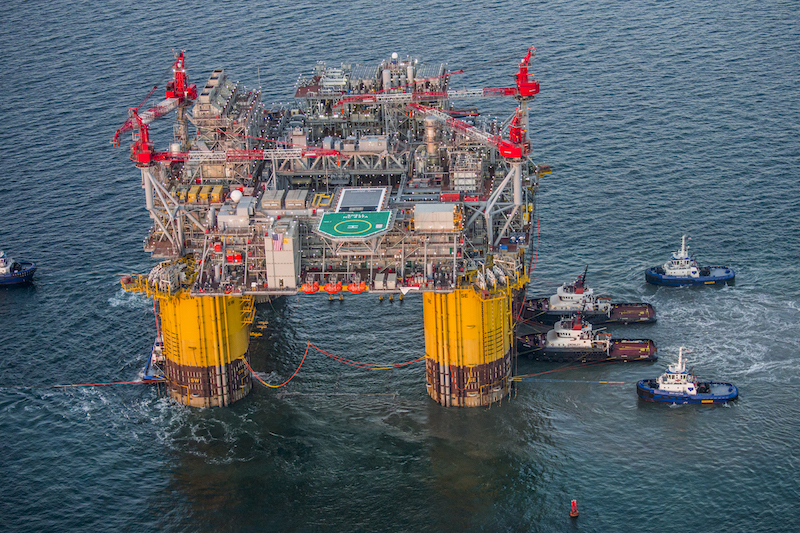Crowley Maritime Corp. tugs helped deliver Shell’s Appomattox semisubmersible floating production system (FPS) to the U.S. Gulf from Kiewit Offshore Services' construction facility in Ingleside, Texas.
Crowley’s Ocean Sky and Ocean Sun tugboats worked together on the tow-out, on behalf of the installation contractor Heerema, alongside other third-party assets to deliver Appomattox.
The Ocean-class tugs safely towed the FPS through the Aransas Channel, then disconnected and provided escort services to the deepwater installation site located 80 miles off Louisiana. Once there, the tugs reconnected to provide positioning support so Heerema could attach the Appomattox FPS to its mooring spread.
“We are proud to have assisted Heerema with another safe and productive tow-out,” Crowley vice president Johan Sperling said in a statement. “Our Ocean-class tugs and experienced team continue to demonstrate the company’s ability to provide offshore and heavy lift marine project support for a variety of energy customers.”
The Ocean-class tugs are modern ocean towing twin-screw vessels with controllable pitch propellers (CPP) in nozzles, high-lift rudders and more than 147 metric tons of bollard pull. The first two Ocean-class tugs, the Ocean Wave and Ocean Wind, are classed Dynamic Positioning 1 (DP1) tugs. The 146'x46' twin-screw tugs have a hull depth of 25' and design draft of 21'. The second two tugs of the class, the Ocean Sky and Ocean Sun, are classed DP-2 and are 10' longer. All four vessels are capable of rig moves, platform and floating production, storage and offloading (FPSO) unit tows, emergency response, salvage support and firefighting.
The Appomattox is located in 7,400' of water. Shell has a 79% interest in the project (operator), and Nexen Petroleum Offshore USA Inc. has the remaining 21% interest.
The Appomattox development will initially produce from the Appomattox and Vicksburg fields, with first oil by the end of the decade and average peak production estimated to reach approximately 175,000 barrels of oil equivalent per day (boe/d).
Since Shell made its final investment decision (FID) in July 2015, the company has achieved more than 25% cost savings, in addition to approximately 20% cost reduction on the project prior to the FID, Shell said. These cost reductions have been the result of efficient execution, significant well cost reductions, and lower market costs, the company added.
Appomattox has a current break-even price (BEP) of less than $50 bbl.




